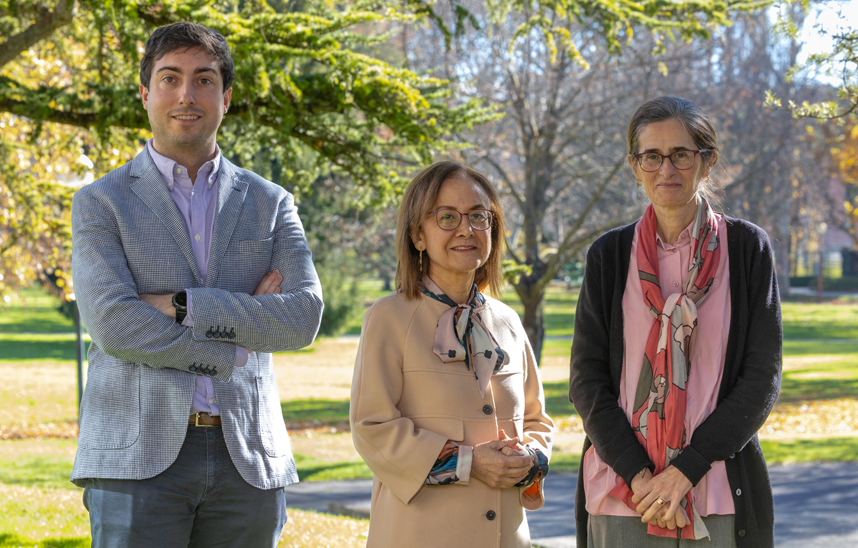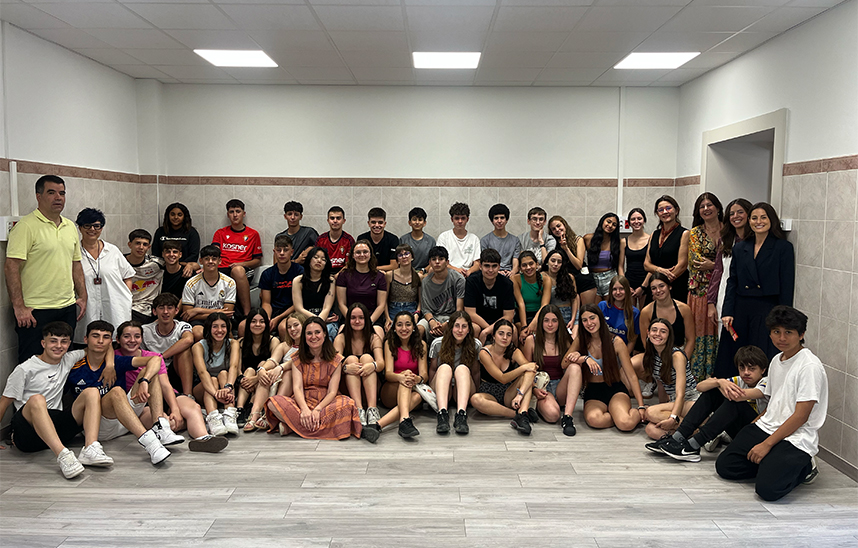Civic Education , core topic to face the challenge of society's polarization
Concepción Naval, professor of Theory and History of Education at the University gave the Inaugural Lecture during the opening of the academic event 25-26

FotoManuelCastells/Concepción Naval, during her speech at the opening of course 25-26
12 | 09 | 2025
"In light of the current polarized social and political landscape, there is a clear need to promote civic Education among young people, earlier, more and better than we have done so far". Concepción Naval, professor of Theory and History of Education and leader of the research group 'Education, Citizenship and Character' of the University of Navarraoffered the inaugural lecture on Friday on the occasion of the academic act of opening of the course of the institution.
Through 10 thesis , articulated in three axes -concept, subject and means-, Naval explained what civic Education is and how it is a core topic to face the political, social and cultural polarization in which we currently live. "In the last four, almost five decades, we have witnessed a process in Western thought that affects various cultural, social and obviously educational issues: a civic turn, around 1989, with the fall of the Berlin Wall, and an ethical turn two decades later, when we realized the need to establish a framework, some ethical limits to be able to educate in freedom," he pointed out. Naval suggested thatcivic Education is not a "new concept", whose roots come from Western philosophical, political and pedagogical thought. However, she pointed out that in recent years there has been talk of character Education , the result of interest "in the subject of the person that the student is and can become, not only as a citizen, but also as a person. Likewise, the professor affirmed that there is a close relationship between civic and moral Education , which are dependent on each other.
To speak of a complete civicEducation , the researcher affirms that it must include the transmission of knowledge, the cultivation of attitudes, positive habits and the internship skills (especially participatory and communicative), and that these are learned "primarily in the family, in addition to some at school". " My proposal is to bet on common social attitudes, such as optimistic altruism, responsibility -both social and political-, respect, loyalty and justice, all of which are based on freedom staff" says Naval and adds: "A good citizen knows and feels that he or she is part of society as a whole. But for this concern to be real, he needs to know and love, to be understanding, to be open to the contrast of opinions different from his own. In other words, to be respectful, loving the freedom of others".
The implementation of this civic Education , according to Naval, can be done through various "fruitful" methodologies such as service-learning projects, volunteer activities or the analysis of ethical-civic dilemmas. However, "the important thing is the collective internship of virtue," he stresses.
Likewise, the professor advocates reviewing "digital or media citizenship", since virtual media have become "central elements for public participation, they are a relevant modulator of social movements and constitute a core topic channel for social and cultural influence and communication of political ideas".
Finally, Naval bets on magnanimity as a tool to transmit to this individualistic and polarized society a notion of common good to face the task with realistic optimism.



